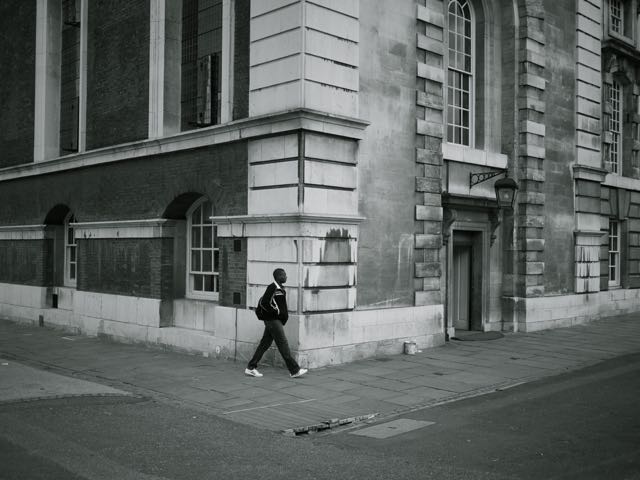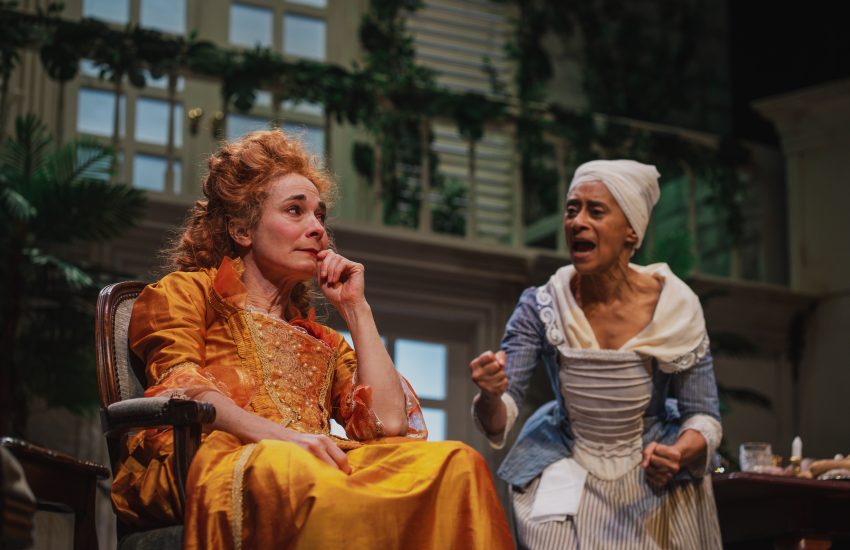Notes of An African American Intern in Europe: Part 2
In her second diary entry, Afropean’s intern Imani Ballard reflects on the Colonial power on display in some of Europe’s cultural spaces, and grapples with her black identity and American nationality…
By Imani Ballard
I reached my hand down through my belly and grasped unto the foreign object.
I pulled, it was caught, it felt as if it were meant to be there.
I tugged until it was released.
I cast it out of my body and held it in my hands.
I stared it in the face until I wept. My body shook from years of struggling, from years of contemplation, from years of doubt.
I saw the truth stain my hands, I regrettably swallowed it again.
I recently took a trip to the Osterley Park and House, per the suggest of Afropean’s editor Johny Pitts. Before I set out, I was given a brief history of the estate and how the Child family, who had previously owned the house, had invested immense stakes within the exploitive East India Company. Similarly to King Leopold II in Brussels, a massive importation of stolen goods directly resulted in Britain’s prosperous development and upsurge in extravagant wealth. As I drew near to the massive estate, I was reminded of our recent visit to the Royal Museum for Central Africa in Brussels. While we were at the Royal Museum, I remembered commenting on the awe-inspiring nature of the grounds counteracted with the horrific reality of the brutal and sweeping destruction of colonialist reign in the Congo. One minute, I was capturing a snapshot of the breathtaking architecture, in the next, I seemed to drown in the bloodshed that permeated throughout the very foundations of the Museum. I recognized that my black body, at a different point of time in history, would be exoticised as just another exhibit in the same museum I attempted to marvel at. It felt wrong to be there. I wondered if the young groups of families out camping or the adults jogging on the neatly groomed paths besides us cared about this history. I wondered if my very presence at the Royal Museum in Brussels was a blatant disregard for the people affected by this history. I knew it felt wrong to be there and I wanted to leave. As we got on the train back to downtown Brussels, I felt glad to leave and forget that place. I pushed the truth down my throat and stifled that reality.
As I walked down the pathway dotted with bright green trees which lead to Osterley House, I couldn’t help but remember how I tried to forget that history because of the discomfort I felt when I began to analyze my complicity with colonialism. I continued to walk down this seemingly picturesque trail and once again caught myself marvelling at the beauty I saw in one hand while grappling with the reasons behind its existence in the other hand. When I later took a tour of the house I was struck by the overt foreign artefacts placed as prized memorabilia throughout the house. There was one artefact from China that had a beautifully detailed family crest painted on. One of the tour guides boasted about the acquisition of this object during one of the trading expeditions. To me, it served as a stark reminder of the disregard of cultural importance that colonizers continually exhibited.

I also noticed that I was one of the few Black individuals at Osterley. Later, I came across two young Black women and we struck up conversation. One of the women asked where I was originally from to which I replied “America.” She shook her head vigorously and chuckled.
“No, where are you from? Nigeria, Ghana, are you African?…” she responded.
I laughed and pointed to my arm.
“Yeah, I’m Black.”
The group of us laughed.
“It’s funny. All of you Americans say that,” she told me.
I thought about that for a second.
“Yeah, it is funny… We just don’t know,” I told her. We soon exchanged information and I went on my way towards the house. I was still laughing about our short conversation and felt a wave of sadness and anger. I have no concrete ties to any place other than the United States. My ancestors were literally ripped from their culture and their families and brought to a place that, to this day, argues against our humanity. It hurts when I cannot tell people which culture I am originally a part of. Many days, I do not feel as if I am American. Many more days, I do not want to even try to call myself American. Yet, when I leave a country that actively tries to destroy my people, I have to recognize the ways in which society views me. I see my own privilege I have of being a U.S. citizen. Most of the time, I’m not a person who many people seek out. However, when some hear my accent and recognize that I am American, they suddenly want to befriend me or give me extra deals. On another occasion, my host told me that he sees me as an American before he sees me as a Black person. In these moments, I feel hurt and confusion. I’m seen as the very identity I actively try to repress. I see myself as Black, as undeniably African, yet I am beginning to grapple with the reality that I am undeniably American.
By Imani Ballard


